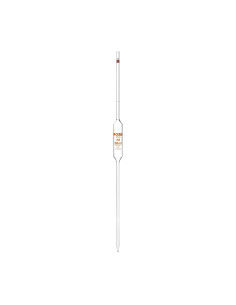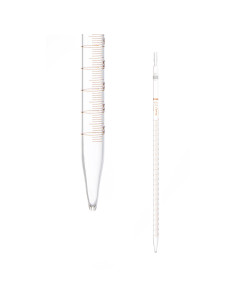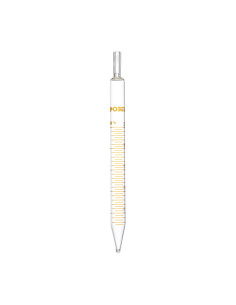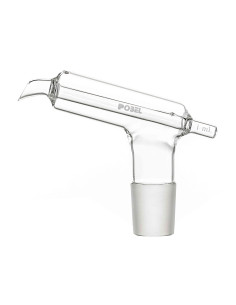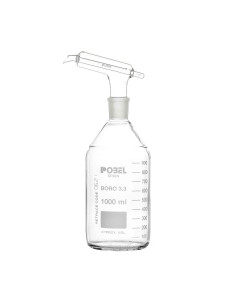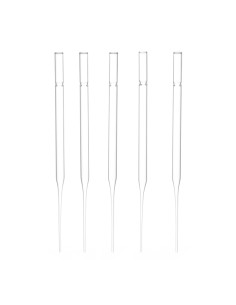There are different types of laboratory pipettes such as volumetric, graduated or class A pipettes. This article will explain each of them in detail.
What is a laboratory pipette?
Laboratory pipettes are essential instruments in any scientific environment, designed for the accurate transfer of liquids in small volumes. These tools are crucial for performing experiments that require accuracy in the measurement and manipulation of liquid substances. Pipettes vary in shape and size, but are generally cylindrical and made of glass. Some pipettes are calibrated to measure different volumes, while others are adjustable.
How are pipettes classified?
Pipettes are classified into several categories, such as:
Volumetric or bulb pipettes: these pipettes are designed to measure a single specific volume with high accuracy. They are ideal for applications where accuracy in measuring a fixed volume of liquid is required, such as in standard solution preparations in analytical chemistry.
Graduated or Mohr pipettes: unlike volumetric pipettes, graduated pipettes have a scale along the length of the tube that allows different volumes to be measured as needed. They are versatile and useful in situations where measurements of several volumes are required during an experiment.
Class A pipettes: class A pipettes are laboratory instruments designed to provide the highest precision and accuracy in the measurement of liquid volumes. They are calibrated to meet strict standards, such as those defined by the International Organization for Standardization (ISO), ensuring reliable results in critical applications. They are ideal for tasks requiring high precision, such as chemical analysis and scientific research experiments.
Class B pipettes: class B pipettes have wider tolerances than Class A pipettes, making them less accurate and suitable for applications where extreme precision is not critical.
Discover Pobel's laboratory pipettes
At Pobel, we understand the critical importance of accurate tools for successful scientific procedures. Our laboratory pipettes, including volumetric, graduated and class A pipettes, are designed to offer maximum accuracy in liquid transfer and measurement. These pipettes, calibrated to strict international standards, are ideal for a variety of applications, from academic teaching to cutting-edge research and quality control in industry. We invite you to explore our full range of pipettes and discover how they can improve the accuracy and efficiency of your laboratory.
Frequently Asked Questions
How many pipettes are there?
There are many types of pipettes, designed for different needs and specifications.
Which is the most commonly used pipette?
Volumetric and graduated pipettes are the most commonly used pipettes in laboratories due to their ability to adapt to a wide range of scientific applications. Volumetric pipettes are preferred for their ability to measure accurate volumes, which is crucial in procedures requiring high precision. Graduated pipettes offer the flexibility to measure different volumes with a single tool, making them ideal for experiments that require multiple measurements. This combination of accuracy and flexibility makes them indispensable instruments in research and educational environments.




